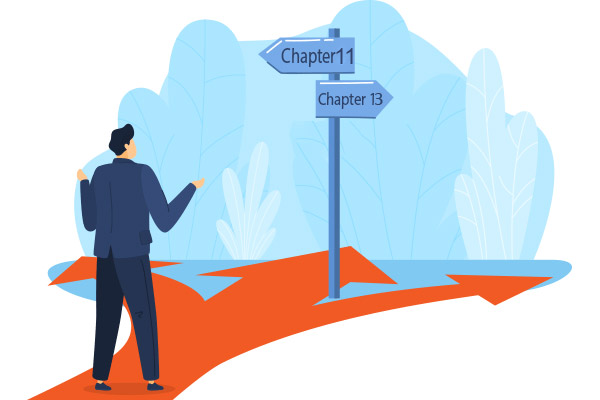Are you facing financial challenges and considering bankruptcy? It’s a tough spot to be in, but understanding your options is the first step towards a fresh start. In this article, we’ll delve into the differences between Chapter 11 and Chapter 13 bankruptcy, helping you make an informed decision tailored to your unique situation.
Embarking on the bankruptcy journey can be daunting, but it’s crucial to find the right path for your financial recovery. Let’s explore the key differences between Chapter 11 and Chapter 13 bankruptcy, demystifying the process.
Understanding Chapter 11 vs Chapter 13
Chapter 11: Often referred to as ‘reorganization bankruptcy,’ Chapter 11 is primarily designed for businesses but can be utilized by individuals with substantial assets. It allows for the restructuring of debts, giving the debtor a chance to stay afloat.
Chapter 13: Tailored for individuals with a regular income, Chapter 13 involves a repayment plan spanning three to five years. It’s a viable option for those with a steady income seeking to retain their assets while gradually paying off debts.
Eligibility Criteria
To file for Chapter 11, there’s no specific income limit, making it accessible to businesses and high-income individuals. On the other hand, Chapter 13 is for individuals with a stable income source, but there are debt limits to qualify.
Differences in Repayment Plans
Chapter 11: The repayment plan is flexible and often involves negotiations with creditors to reduce debts and extend repayment terms.
Chapter 13: Follows a court-approved repayment plan where debtors make regular payments to a trustee, who then distributes the funds to creditors.
Impact on Assets
Chapter 11: Debtor retains control of assets during the bankruptcy process, allowing for more significant involvement in business operations.
Chapter 13: Individuals can keep their assets, but they must adhere to the court-approved repayment plan to protect creditors’ interests.
Duration of the Bankruptcy Process
Chapter 11: Typically, a lengthier process due to complexities involved in business reorganization, lasting several months to years.
Chapter 13: Lasts three to five years, providing individuals with a more manageable timeframe for debt repayment.
Pros and Cons of Chapter 11
Pros:
- Opportunity for business survival and recovery.
- Flexibility in restructuring debts.
Cons:
- High costs and complexities.
- Lengthy process, affecting day-to-day operations.
Pros and Cons of Chapter 13
Pros:
- Asset retention, including homes and cars.
- More accessible for individuals with a regular income.
Cons:
- Strict repayment plan requirements.
- Limited debt threshold for eligibility.
Case Studies: Real Stories of Chapter 11 and 13
Delve into real-life examples of individuals and businesses that successfully navigated Chapter 11 or Chapter 13, gaining insights into their challenges and triumphs.
How to Choose Between Chapter 11 and Chapter 13
Considering your financial situation, we’ll guide you through the decision-making process, helping you choose the bankruptcy path that aligns with your goals and resources.
Life After Bankruptcy: Rebuilding Your Financial Future
Discover practical steps and tips on rebuilding your financial life post-bankruptcy. It’s not just about getting through the process but emerging stronger on the other side.
Common Myths Debunked
Separate fact from fiction as we debunk common myths surrounding Chapter 11 and Chapter 13 bankruptcy. It’s time to dispel misconceptions and make informed choices.
Seeking Professional Advice: Bankruptcy Attorneys
Explore the importance of consulting with a bankruptcy attorney. Their expertise ensures you have a clear understanding of your options and navigate the legal complexities seamlessly.
Extending Your Knowledge
While we’ve covered the essential aspects of Chapter 11 and Chapter 13, there’s always more to learn. Consider additional factors like the emotional toll of bankruptcy, community resources for support, and long-term financial planning.
In wrapping up, the choice between Chapter 11 and Chapter 13 depends on various factors. Seek professional advice, weigh the pros and cons, and remember, bankruptcy is a tool for financial recovery, not a defeat. Choose wisely and pave the way for a brighter financial future.
If you’re still interested in collaborating, please don’t hesitate to reach out. I’m available for a quick call at any times.

